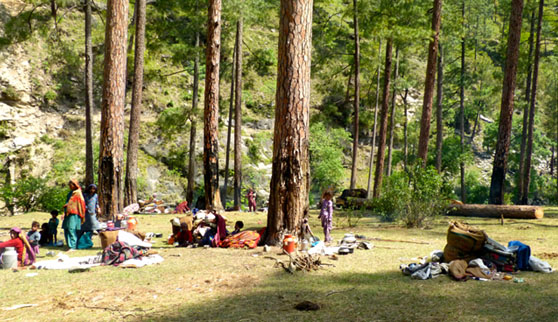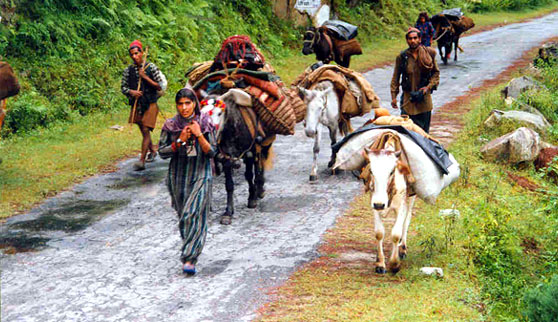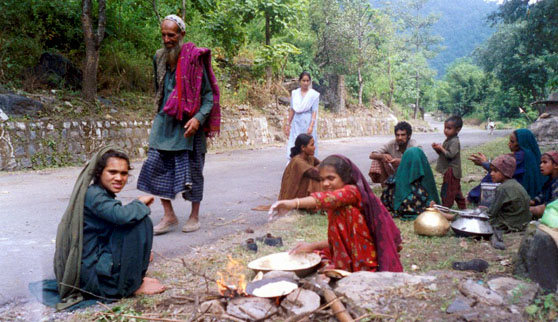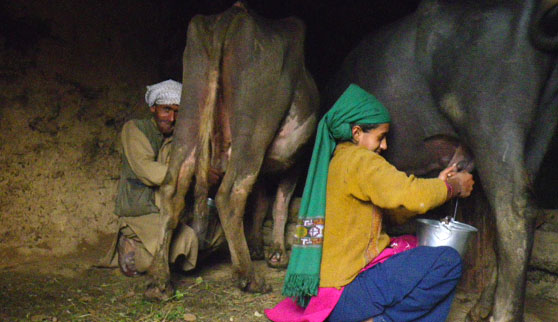
This section offers a window into the Van Gujjars’ traditional lifestyle. However, we do not seek to essentialise the Van Gujjars and so remind the reader that the community is engaged with contemporary society and both individuals and families enact their livelihoods in subtly different ways. In the case of the Van Gujjars, the term ‘community’ signifies a group of people, spread across several states, with a variety of aspirations. Whilst the majority of members fight to continue their traditional livelihoods, others, for multiple reasons, aspire to alternative pathways.


The Gujjars are a diverse minority group who are indigenous to India, Pakistan and Afghanistan. Customarily, the Van Gujjars are a distinct population of Gujjars who live and travel within the northern forests of India’s Himalayas and nearby plains. The community’s unique identity is encased within its name, Van meaning ‘forest’ in Hindi and Gujjar meaning ‘the-way-we-are’. The people SOPHIA works with occupy the states of Uttar Pradesh, Uttarakhand and Himachal Pradesh.


The Van Gujjars’ traditional livelihoods depend upon the forests, revolving around semi-nomadic buffalo husbandry and the trade of milk. Furthermore, the community’s livelihoods are actualised through transhumance, the seasonal migration of people and buffalo between the highland and lowland forests. The Van Gujjars have carried out their customary livelihoods within the Himalayan forests for centuries. However, to sustain their livelihoods they face numerous socio-political challenges.